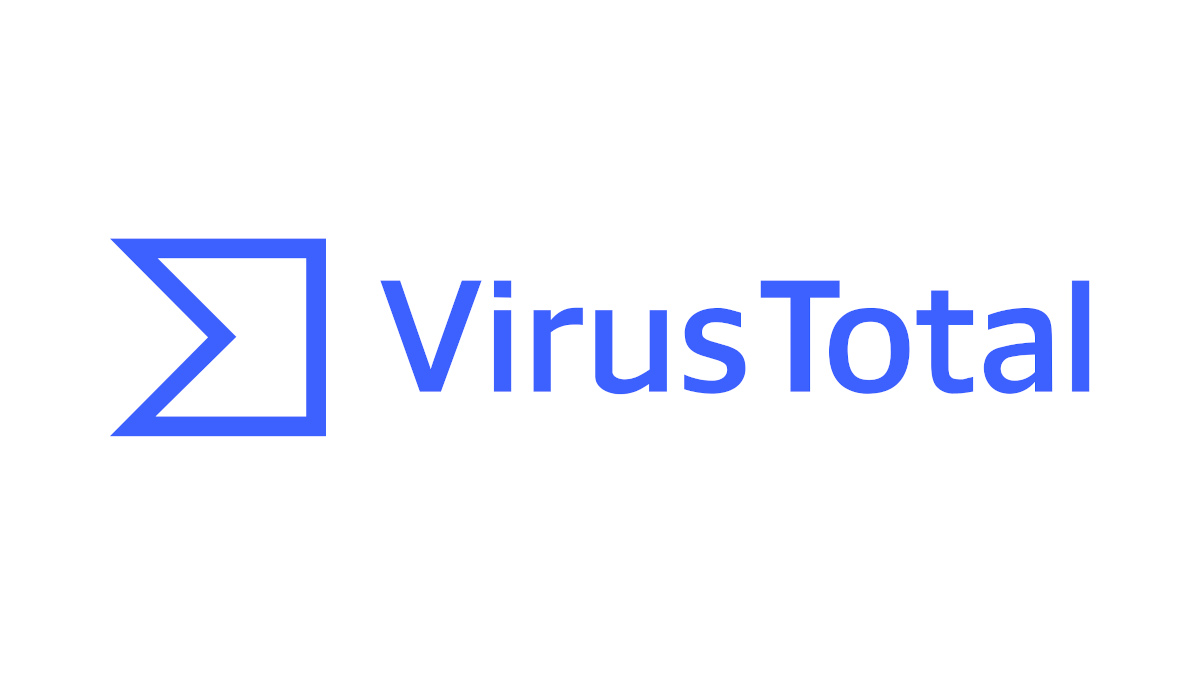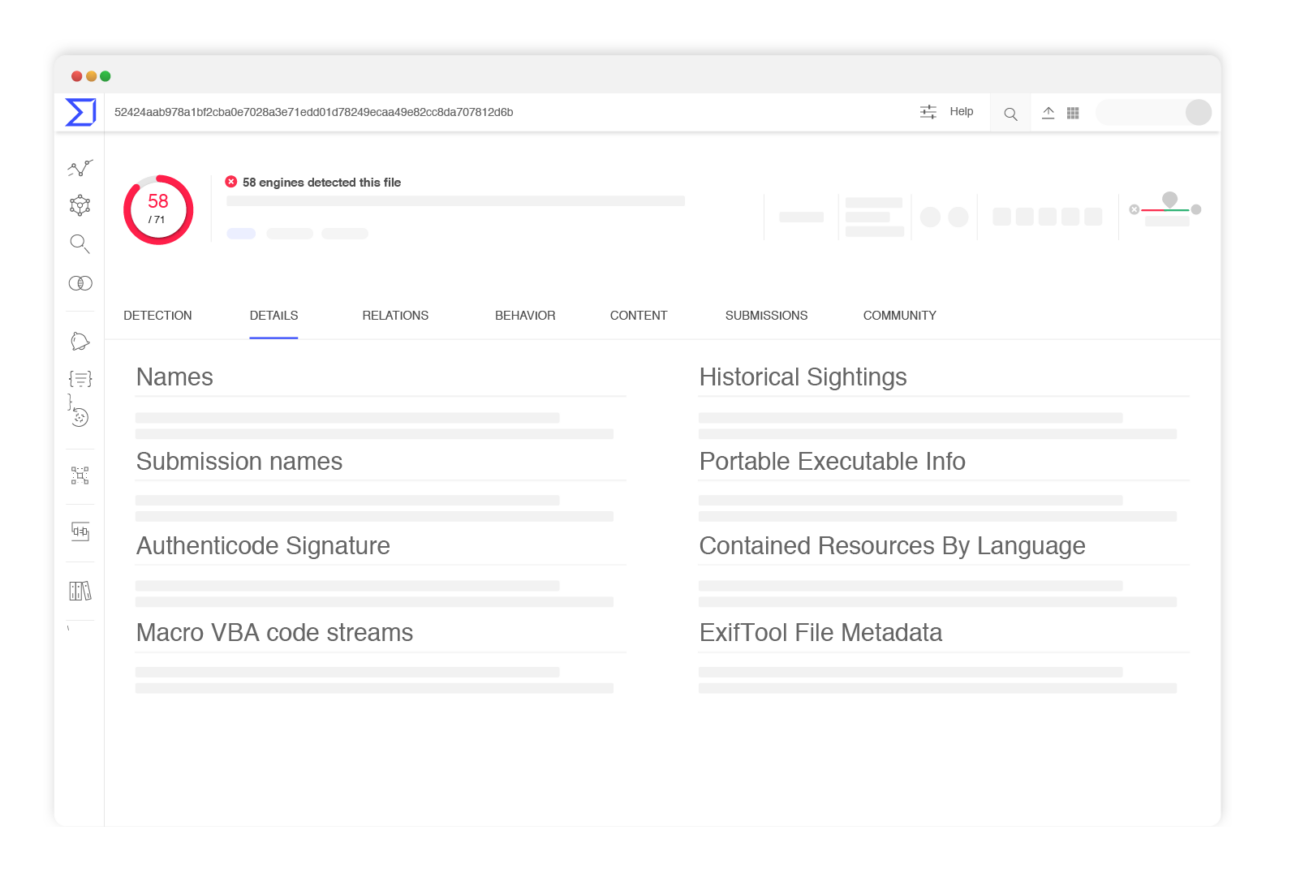In the ever-evolving landscape of cybersecurity, a steadfast guardian has emerged – VirusTotal. This unassuming yet powerful platform has played a pivotal role in the battle against cyber threats. For those in the area of information security, VirusTotal is a name that resonates with the promise of comprehensive threat analysis. In this article, you embark on a journey to unravel the origins, evolution, and contributions of VirusTotal.

The beginning of VirusTotal
VirusTotal, launched in 2004, was the brainchild of two visionary Spanish security researchers, Julio Canto and Bernardo Quintero. Their mission was clear: to create a centralized platform that would empower individuals and organizations to scrutinize files and websites for malicious content. At its core, VirusTotal analyses hashes, IPs, domains, hostnames, and other assets to detect and identify nefarious elements.
While VirusTotal began its journey primarily focused on malware scanning, it has since evolved into a multifaceted cybersecurity platform. Today, VirusTotal offers a plethora of services that extend beyond scanning files and URLs.
A coalition of guardians
The distinguishing feature of VirusTotal lies in its ability to aggregate and harness the scanning prowess of diverse antivirus engines developed by different security companies. This collaborative approach ensured a comprehensive assessment of potential threats. Over the years, VirusTotal expanded its arsenal, encompassing more than 70 antivirus scanners. Today, it stands as one of the most extensive online malware scanning services available.
One such service is VirusTotal Intelligence, a premium offering that empowers organizations to delve into advanced threat intelligence. This service enables the comprehensive search, analysis, and correlation of data related to malware samples, URLs, and domains, empowering organizations to understand and combat cyber threats more effectively.
Seamless integration with security ecosystem
VirusTotal’s commitment to enhancing cybersecurity is evident in its seamless integration with various security tools and platforms. Security professionals can easily incorporate VirusTotal’s scanning and analysis capabilities into their existing workflows and systems. The provision of API access enables developers and organizations to create custom integrations and automate the submission of files and URLs for analysis.
The Google Era: A Game-Changing Move
In September 2012, Google recognized VirusTotal’s immense potential and acquired the platform. This strategic move allowed VirusTotal to harness Google’s vast cloud computing infrastructure, ensuring high-speed and reliable analyses of a large volume of file and URL submissions. The acquisition also expanded VirusTotal’s reach and influence, further solidifying its role in the cybersecurity landscape.
Under Google’s ownership, VirusTotal has thrived. It gained financial stability, access to cutting-edge technologies, and the ability to expand its team. This backing allowed VirusTotal to remain at the forefront of the constantly evolving threat landscape.
Chronicle: A New Dawn
Since 2018, VirusTotal has operated under Chronicle Security Operations, a subsidiary of Google. This partnership has unlocked numerous advantages for VirusTotal, including enhanced scalability, access to cutting-edge technologies, stability, and reliability. Users can now rely on VirusTotal’s services for real-time threat analysis without concerns about downtime.
Additionally, VirusTotal can seamlessly integrate with other Google services, such as Google Safe Browsing and Chronicle, further bolstering its capabilities in protecting users from malicious websites and supporting advanced threat analysis and reporting.
The unique attributes of VirusTotal
What sets VirusTotal apart are its remarkable features. Retrohunt searches enable users to track changes over time and access the evolution of digital context. Additionally, VirusTotal offers seamless out-of-the-box integrations with a wide array of security tools, including EDRs, SIEMs, SOARs, and more.
Unveiling the technology and methodology
VirusTotal’s approach to analysing and detecting malicious files and URLs is a testament to its prowess. It checks URLs and domains against known threat feeds and reputation databases, promptly identifying malicious elements linked to phishing attacks, malware distribution, or command and control servers.
The platform encourages user collaboration by allowing individuals to comment on, and share insights about, scanned files and URLs. This community-driven information adds valuable context to potential threats.
VirusTotal deploys a wide array of commercial and open-source antivirus engines, each employing distinct detection techniques. These techniques include signature-based detection (matching known malware signatures) and heuristic analysis (identifying suspicious behaviour or code patterns). The results from multiple antivirus engines are amalgamated to provide a comprehensive assessment.
Furthermore, VirusTotal utilizes YARA rules, which consist of customizable patterns and signatures, to identify specific file and URL characteristics associated with malware families or threat actors. The contribution of security experts and researchers continuously enhances detection capabilities through the addition of YARA rules.

VirusTotal’s contribution to cybersecurity
VirusTotal’s public availability and crowdsourced nature are a testimony to its significant contribution to the cybersecurity community. It empowers security professionals and organizations to enhance their security posture. By integrating VirusTotal, they gain access to a wealth of threat intelligence.
Anticipating the future: AI
As the cybersecurity landscape continues to evolve, VirusTotal’s role becomes increasingly decisive. Its foray into Artificial Intelligence and GenAI within the security domain promises groundbreaking advancements. Further integrations with other products and services will continue to solidify VirusTotal’s standing as a cybersecurity stalwart.
This is how VirusTotal will use Gen AI: Introducing a new feature called “code-insight.” In the past, when using VirusTotal, you would check if an IP address or file is harmful. Now, they’ve made it even better: you can input a section of code, and it will explain how it affects security. This is very helpful if you’re trying to understand what various parts of code do and whether it’s going to be malicious to your environment or not.
In conclusion, VirusTotal is not merely a tool; it is a beacon of cybersecurity, guarding against the relentless tide of cyber threats. Its journey from inception to becoming a vital component of Google’s cybersecurity arsenal is a testament to its unwavering commitment to a safer digital world.

Enhance efficiency, enable deeper – and faster – insights, and address talent shortages with AI & Google Cloud’s Security stack
This e-book gives insights in how you can leverage tools like Mandiant, VirusTotal and Chronicle SIEM & SOAR.